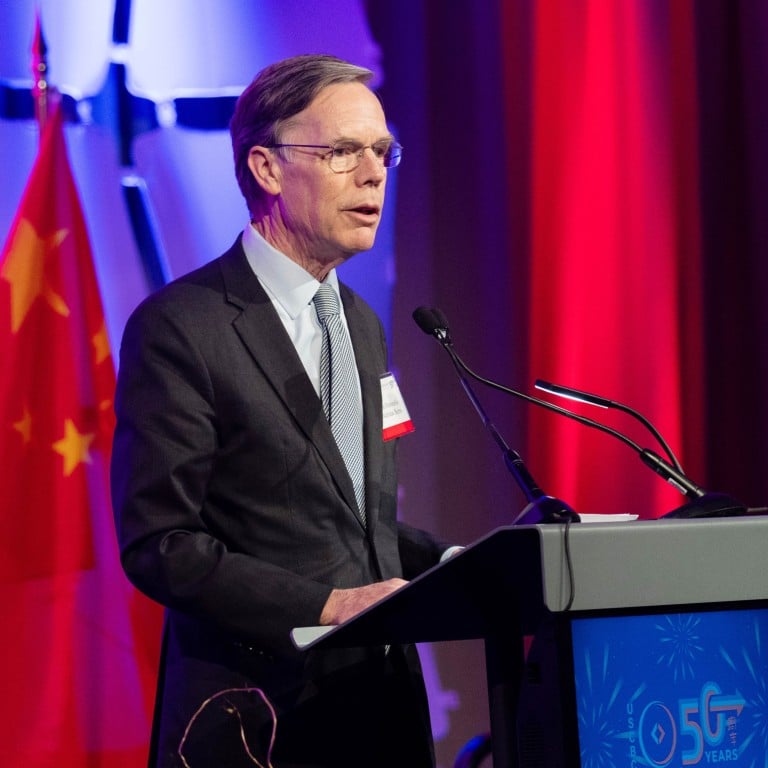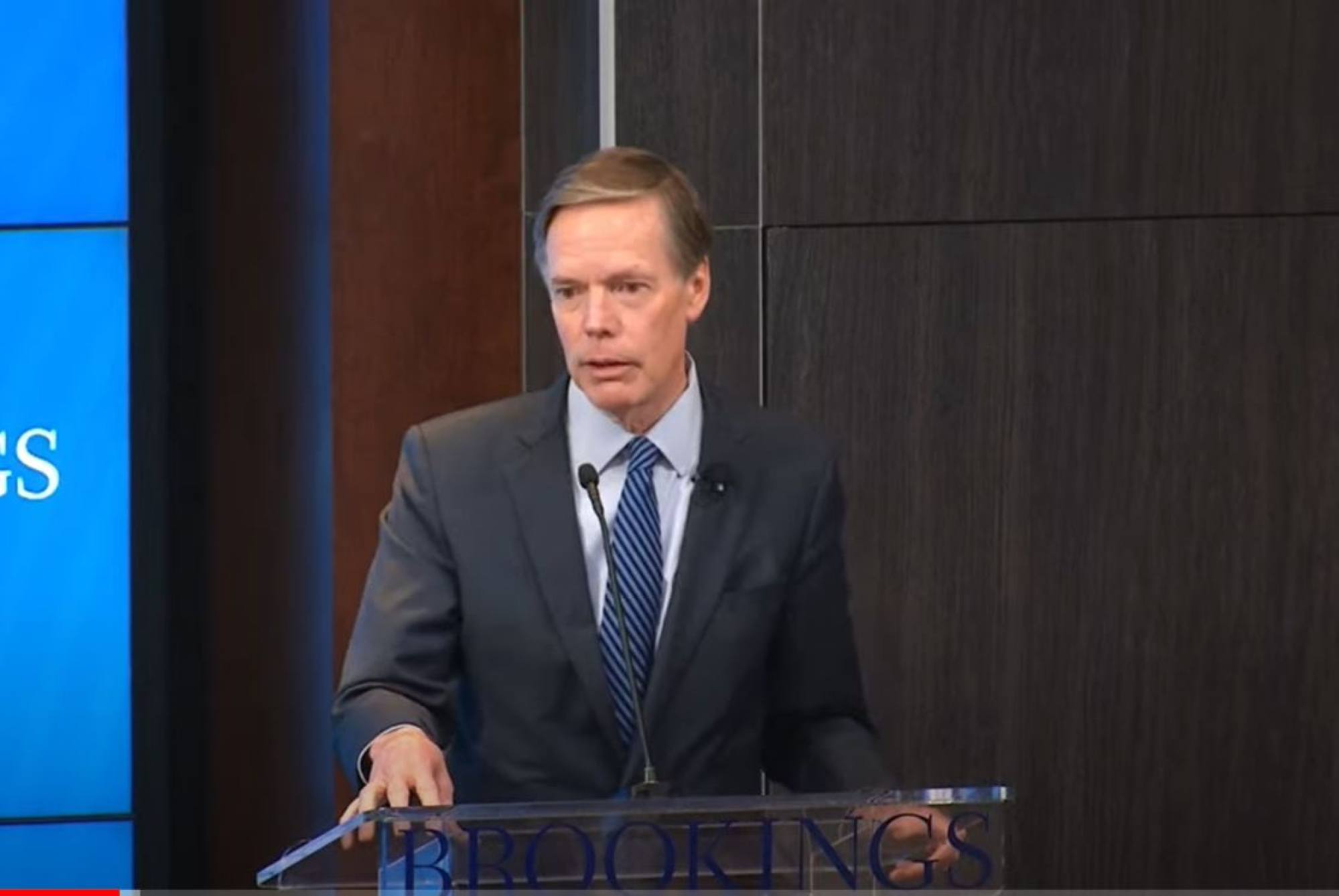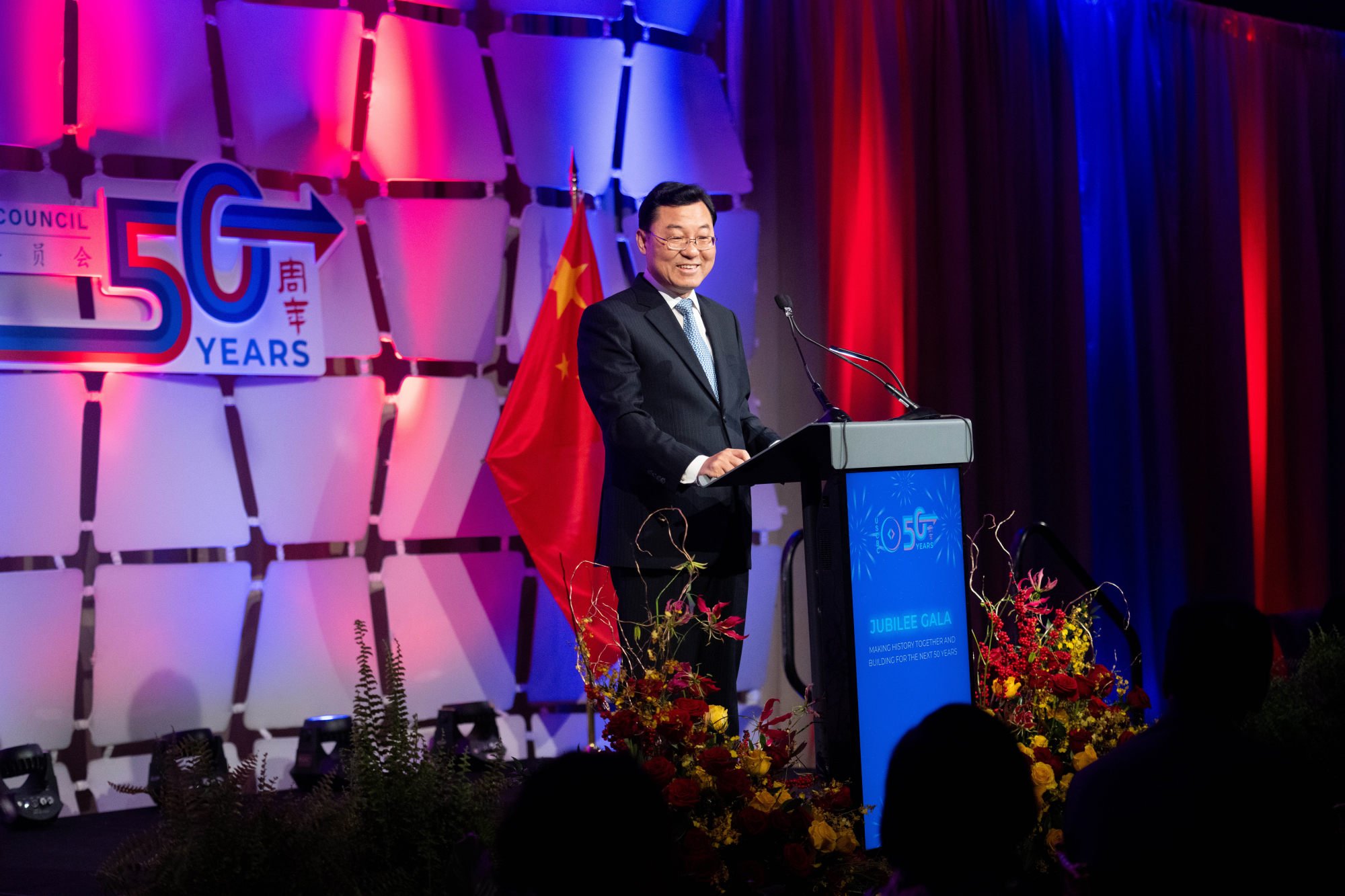
‘I wouldn’t say I’m optimistic’ about state of China relations, says US ambassador to Beijing Nicholas Burns
- Burns’s comments follow recent signals from both sides that they plan to address some of the deep divisions that have destabilised the US-China relationship
- Calling China a ‘systemic rival,’ Burns says that because Washington is both competing and engaging, the relationship ‘doesn’t render into simple analysis’
“Hopeful” and “realistic”, but not “optimistic”.
That was the assessment on Friday from America’s ambassador to Beijing about recent efforts by US President Joe Biden’s administration to stabilise the US-China relationship.
In a wide-ranging discussion at the Brookings Institution that hit on all the familiar notes about the challenge that China presents for the US, Ambassador Nicholas Burns referred to the country as a “systemic rival”, but said that because Washington is both competing and engaging, the relationship “doesn’t render into simple analysis”.
Other examples of the complex diplomatic grey zone include disappointment over the State Department’s assessment that Beijing has taken Moscow’s side in Russia’s war against Ukraine, along with confidence that the Kremlin is not yet getting Chinese lethal weapons.

President Xi Jinping’s stated goal of having some 50,000 American students in China – the kind of exchange that Burns said was necessary for the next generation of US policymakers – clashed with the way Beijing “unremittingly” hammers Washington’s reputation in its media and blames America for the Russian invasion.
The problem, he said, is that Chinese government officials tend to shut down communication whenever a bilateral dispute occurs, making the duration of recent progress uncertain.
“So I wouldn’t say I’m optimistic,” he said. “Careful … realistic, maybe hopeful if you will, but hopeful is different from being optimistic.”
China uncooperative on fentanyl crisis until body was off blacklist: US official
However, Burns was clear about the direction that engagement is going, saying the breakdown in talks on the military and other fronts earlier this year represented the lowest point in bilateral relations since president Richard Nixon began talks with the People’s Republic of China in the early 1970s.
Just months later, the Xi-Biden summit was the “best” of the seven meetings the two leaders have had since Biden became president, including five virtual ones, Burns said.
Klaus Larres, professor of international affairs at the University of North Carolina at Chapel Hill and a fellow at the Wilson Centre think tank, said he agreed with the assessment that the prospects for more agreement between the two sides have improved.
“I think we see a charm offensive from China, both regarding Europe and also the United States,” Larres said. “We see an interest in fulfilling promises like [Burns] said about the fentanyl, which seems to have begun to work. The black market in precursor chemicals seems to be shutting down at least partially in Beijing.”
“There’s good will available right now,” he added. “Whether it will last is a big question.”

Burns’s comments follow signals from both sides this week that they aim to address some of the deep divisions that had destabilised the relationship.
With many issues outstanding despite last month’s summit, Burns met lawmakers involved in legislation that threatens to strain ties further.
Burns spent time with Senate Majority Leader Charles Schumer, who has championed a bill aimed at removing China from US semiconductor supply chains, as well as with Senator Jeanne Shaheen, a New Hampshire Democrat co-sponsoring legislation to block the federal government retirement plan from investing in firms based in or closely affiliated with China.
He also met with Senator Dan Sullivan, an Alaska Republican, for a “very productive discussion of the many challenges in our relationship with China”, and Winston Lord, an architect of Nixon’s project to forge ties with Beijing, for a conversation at the Council on Foreign Relations about the state of the bilateral relationship.

